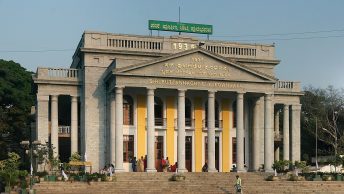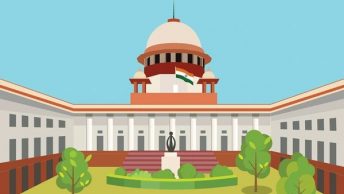State Interference vs. Government Interference
Another angle that must be critically viewed is that of the slight differentiation that exists between the State as an entity and the Government as the other. Mill, in his essay addresses interference by the former to be valid in cases where society is impacted by the action of the individual, but governments are temporary and presupposing that conditions of individual liberty exist only in democratic nations, governments tend to come and go. This particular distinction is also highlighted in the primary judgement authored by Justice G.S Patel.
This ability to further make a determination finds birth in what Mill terms as the ‘development of faculties.’ I must admit here, that it is a rather idealistic view that Mill has adopted in trying to persuade men to get themselves not just educated but capable of rational and logical thinking, instead of following customs, where he believes that each individual realises the potential and weight of his own opinion. While this may not be true and the ‘herd mentality’ is quite real, the crux of this argument lies in the fact that the right to free speech and expression as under Article 19(1)(a) is invariably tied to the right to accept and judge such information that has been freely displayed.
Attempting to find the delicate balance between individual liberty and the authority of society or the State to intervene, Mill outlines that those interventions of a suggestive or recommendatory nature would not violate principles of individual autonomy, but anything that hampers one’s ability to judge and act as per his own will would indeed constitute an infringement on individual liberty and freedom.
Mill’s Harm Principle in Play
The argument outlined in this essay would be incomplete without addressing Mill’s ‘harm principle,’ the make-or-break tenet behind the Solicitor General’s argument in the Kunal Kamra case. Mill’s harm principle is widely discussed and invariably adopted in most democratic systems. The restrictions on an individual’s Fundamental Rights operate on the analogous assumption that the rights are restricted insofar as public order and morality (among other State interests) are concerned. This aligns with Mill’s proposition that “the only purpose for which power can be rightfully exercised over any member of a civilized community, against his will, is to prevent harm to others.”
In this regard, it is important to identify and separate the concepts of ‘disinformation’ and ‘misinformation’, as only one of them truly constitutes an offence against society warranting State interference. Misinformation is delineated from the term disinformation by the narrow discernment of intent. While the former can manifest inadvertently and embody an innocent misrepresentation of information, the latter is accompanied by the intent to deceive or misguide. Analysing the term ‘information’ itself as stated in the PIB Fact Check Unit website shows it as classifiable into three subdivisions, namely, fake, misleading and true. From these, with exceeding relevance is misleading information which is described among other things, to be a partial truth.
This explanation coincides greatly with Mill’s argument that majorly, opinions are either partially true, or part of a bigger truth and that two opposing and seemingly contradictory ‘truths’ might just be a display of the bigger picture and highlight different situational contexts. An example to support this line of reasoning would be to assume that a scathing criticism of a government policy for decreasing employment opportunities might be considered misleading by the Central Government’s FCU, while in actuality, the government policy must be viewed in conjunction with other factors which together contribute to a decreased employment ratio, representing a whole and bigger truth. While the propagation of a partial truth may have morally or principally unjust consequences, it does not constitute harm insofar as it does not infringe upon the rights of those being subject to such misinformation, who in all probability are also subject to different versions of the same information.
Conclusion
With FCUs being declared unconstitutional, will the government continue to be held responsible for the spread of misinformation? Yes; I would like to argue that the government as a protector of its citizens and as a paternalistic figure as it is in India, would still be looked up to for ensuring that people move forward on correct assumptions of information. However, simply because the government is not allowed to exercise control through its FCUs does not it mean it actually cannot work in the interests of the public.
A suggestable (and daresay, more constitutional) alternative, that aligns with the Millian principles stated above, is governmental clarification of its deemed truths, fostering competition among different perspectives while also actively refraining from censorship. Through this, each individual, at his behest is presented with an array of opinions and perspectives and is afforded the liberty of choosing what he believes to be ‘true’ while also bearing the risks of any consequences that may emanate from that choice. This is what is described as a ‘partial truth’ by Mill and is believed to be the best compromise possible. Implemented correctly, this might just strike a balance between the State’s ‘duty’ of legitimate interference as well as individual agency, values that all modern democracies including India, revere.
While other solutions may be drawn out to find the tipping point between the State’s duty to interfere and the public’s right to speech, I believe that Mill’s philosophy provides the most theoretically and practically sound compromise between the two, while maintaining a sense of egalitarianism – the State is not placed above its citizens or vice versa, creating a situation of mutual inclusion. In essence, abiding by Mill’s principles and working with the fine print might just allow the State to exercise its duty of caution and care towards the public while also ensuring that any actions in furtherance of this mandated duty does not shroud their freedom of speech and expression.
Kruthika Senthil Kumar is a 2nd year student at Hidayatullah National Law University, Raipur. She takes a keen interest in the intersection between law and philosophy.
[Ed Note: This piece was edited by Jeetendra Vishwakarma and published by Baibhav Mishra from the Student Editorial Board]






Hamidiye su kaçak tespiti Fatih su kaçağı tespiti: Fatih’te su kaçağı sorunlarınıza kesin çözüm sağlıyoruz. https://shuaq.com/author/kacak